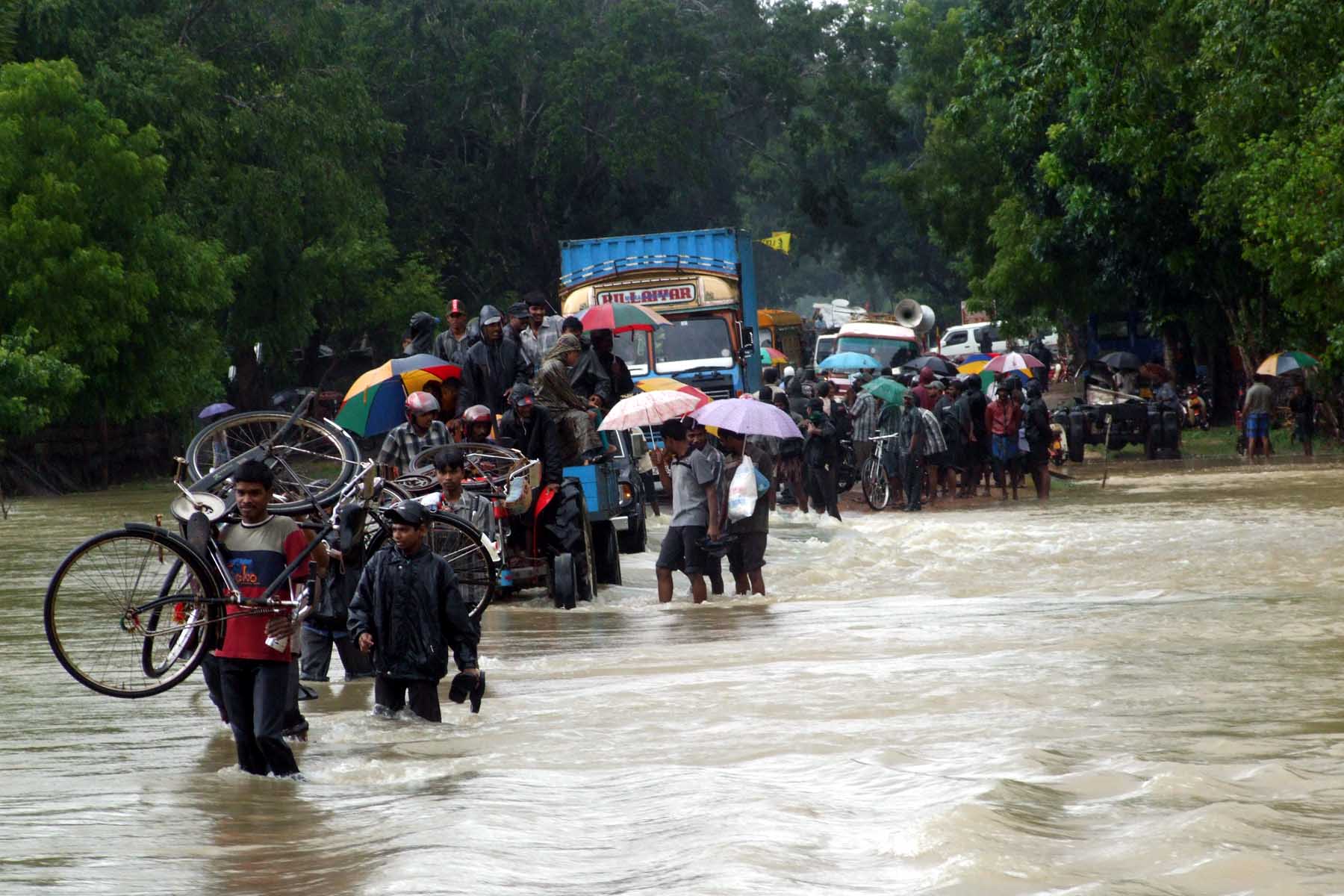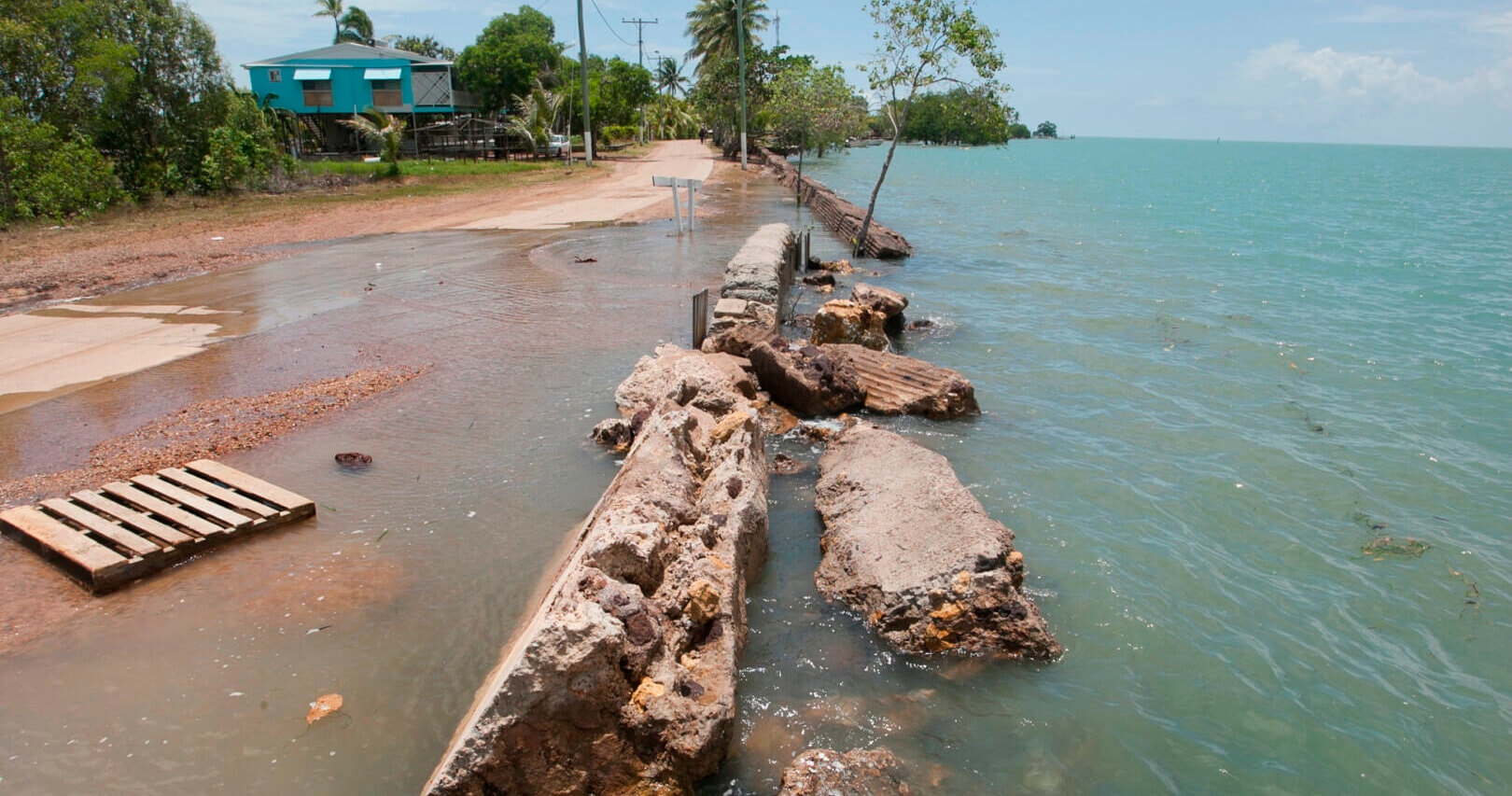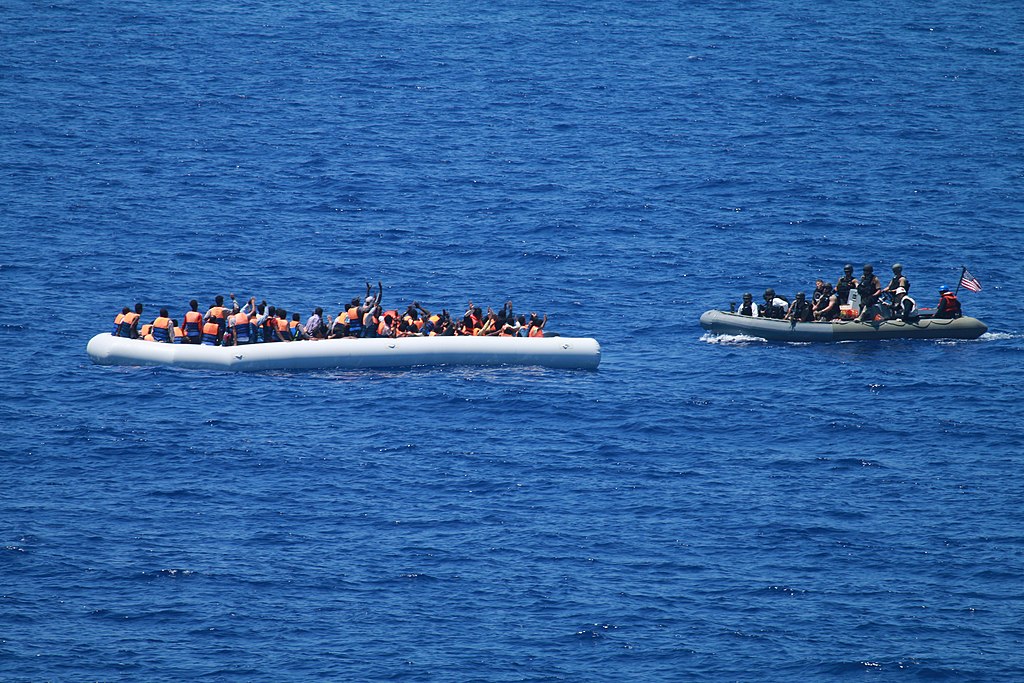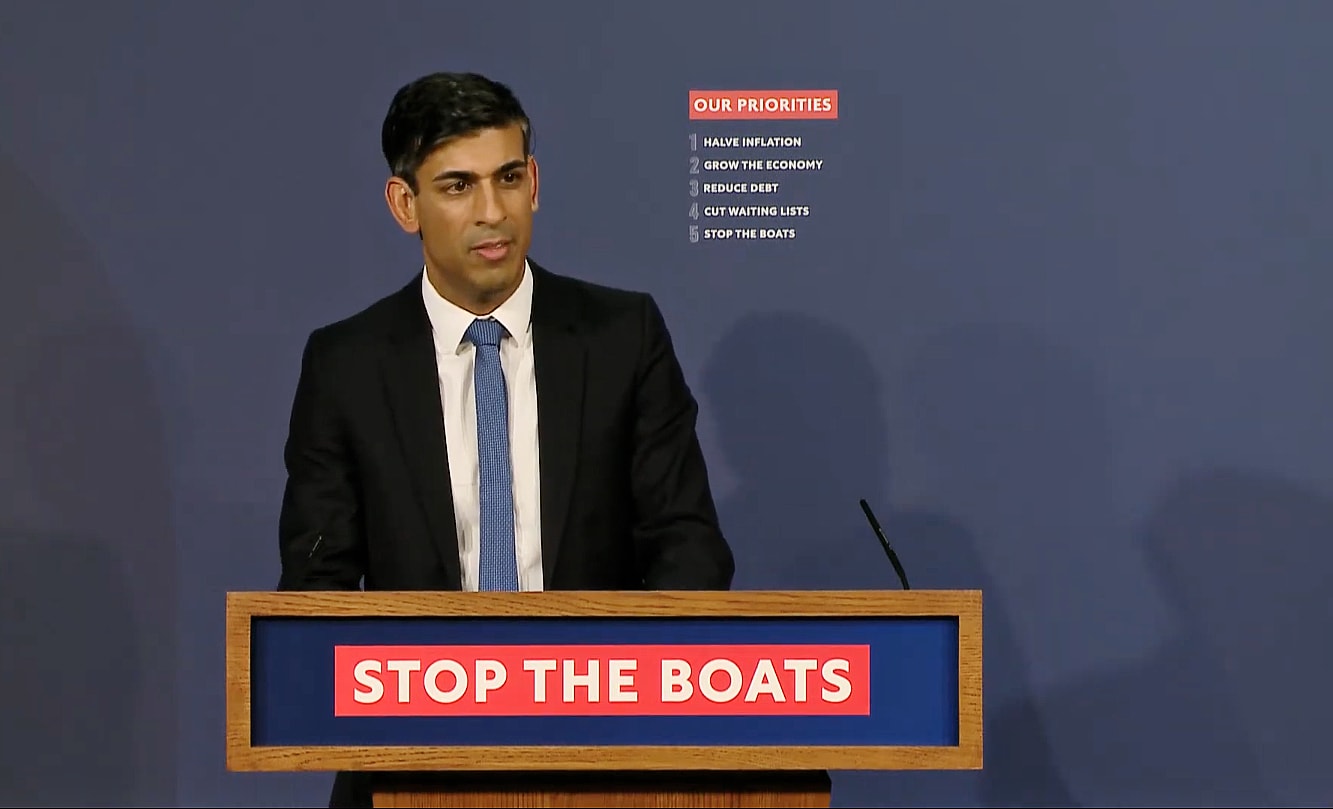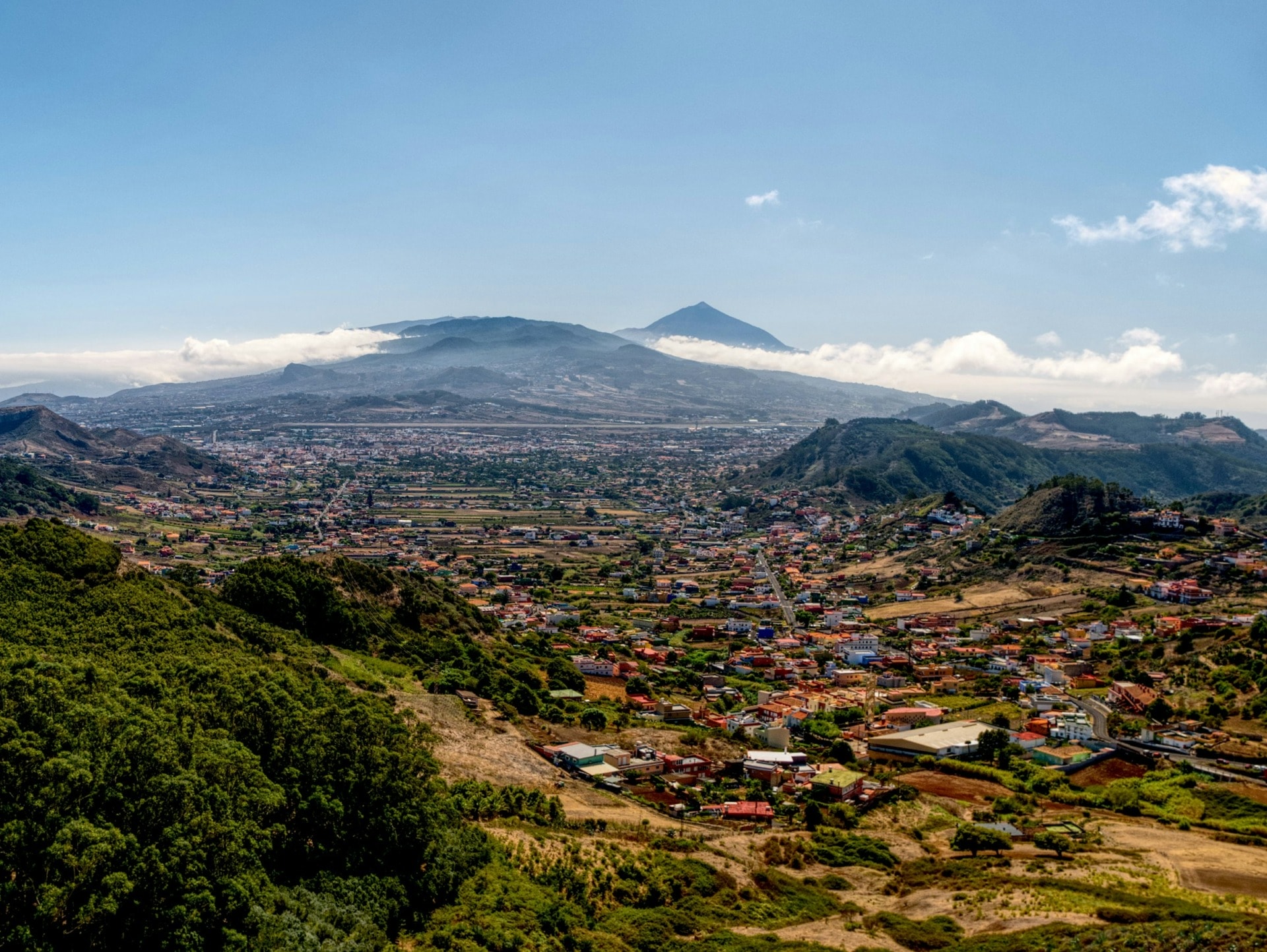Most of what we associate refugees and migration with is the fleeing of conflict and economic instability.
Problems that the west have not been particularly sympathetic about over the years, as governments have continuously pressed for harsher regulations surrounding the ability of asylum seekers to enter certain countries.
However over the past few years, the world has been made increasingly aware of a new cause of migration: climate change, a problem that some may consider the responsibility of the west.
It has been estimated that 1.2 billion people around the globe will be displaced due to climate change by 2050.
To put this into perspective: That’s over is 15% of the entire world population unable to live in their homeland, due to the impacts of rising global temperatures.
📈2012: 42.7 million people
📈2021: 89.3 million people
📈2022: 100 million peopleWhere does it stop?
People should not be #ForcedToFlee.
This should not be the #GlobalTrends of our era.— UNHCR, the UN Refugee Agency (@Refugees) July 21, 2022
The United Nations High Commissioner for Refugees (UNHCR) says that there are currently over 100 million people forcibly displaced around the world, this includes both internal displacement and those who have fled their homeland.
So to say that climate change is a pressing issue on humanity, is beyond an understatement.
EU borders are already struggling enormously at present with the millions currently seeking refuge, but to have 1.2 billion people to accommodate worldwide is unimaginable.
Those who live in fortunate areas that are not yet affected by climate change, will likely feel the political toll taken on huge amounts of people trying to enter their countries from fleeing climate change.
Alert:
The climate crisis is happening now. pic.twitter.com/vktcmuSwlH
— UNHCR, the UN Refugee Agency (@Refugees) January 19, 2023
The political problem of climate migration
The urgent, yet complex issues associated with climate change are becoming increasingly complicated in political terms, as there are currently no international laws for those fleeing from situations caused by its impacts.
This leaves those fleeing their homelands due to environmental destruction with little to no legal migration options.
The EU’s refugee laws can be considered somewhat outdated due to this, as the majority of regulations that have been established regarding migration were set before climate change was having a major impact on people’s livelihoods.
The current political issue is that environmental migrants are not covered by the 1951 Geneva Convention relating to the status of refugees, which only covers those fleeing war and persecution.
🔥 Fighting wildfires.
🌱 Building the Great Green Wall.
🧱 Building sustainably.
🌀 Leading monsoon preparedness efforts.
Displaced people may be on the frontlines of the climate crisis.
And they’re playing their part to fight it. #COP27 pic.twitter.com/vetomZqK7F— UNHCR, the UN Refugee Agency (@Refugees) November 17, 2022
Certain UN agencies are reluctant to officially class those leaving their countries due to environmental issues as “climate refugees,” largely because certain countries do not even have the means to support the existing refugee crisis, as they have already been “stretched to the limit.”
Therefore, there are doubts as to whether expanding the definition of “refugee” to include climate scenarios, would in fact be met with the necessary global political and economic support.
Nina Birkeland, senior adviser for disasters and climate change at the Norwegian Refugee Council, says adjusting or recreating the current refugee convention could take decades.
Related Articles: How Climate Change Will Redraw Maps and Borders | The Inadequacy of EU Migration Policy Can No Longer Be Ignored | Will Italy Stop Saving Migrants and Start Punishing Rescuers in the Mediterranean? | Immigration Reforms: Germany Prepares to Loosen Regulations for Non-EU Migrants | EU to Impose Trade Penalties on Countries That Refuse to Take Back Migrants | Illegal Pushbacks in Greece Are Costing Refugees Their Lives
Other refugee specialists are concerned that if the current treaty was changed to accommodate climate refugees, those who believe the current system is “too generous” would use the opportunity to “dilute current obligations” therefore making the system harsher on those who already have rights.
Essentially, changing the system with an aim to help a greater number of people, might in fact end up causing further suffering.
At the UN climate conference COP27, climate change related migration was barely even covered as a topic. In fact, the only visible means of action that the EU has taken is building tremendously sized walls to keep illegal immigrants out.
Journalists Jennifer Rigby and James Crisp have described this as “Fortress Europe,” affirming the structures that have been built are the equivalent in size to 12 Berlin Walls.
The most recent European Council conclusions vindicate 'Fortress Europe'.
The Europe I dream of puts humanity first. #EuropeforAll #IrelandforAll 🇪🇺🇮🇪 pic.twitter.com/O3RFCoObvv
— Barry Andrews MEP (@BarryAndrewsMEP) February 15, 2023
Is there anything being done to help climate refugees?
The EU aside, New Zealand is set to become the first country to issue climate change-related visas. Former Prime Minister Jacinda Arden created plans for a specific visa for those coming from pacific coast islands that are subject to sea level rise.
It’s astonishing that New Zealand is the only country in the world to recognise climate change as a reason for movement, but also relieving that at least someone is doing something. However, the scheme only proposes to issue up to 100 visas per year, which is a drop in the ocean compared to the scale of the issue in hand.
Climate change is moving at such a fast pace that it is considerably difficult for governments to adapt policy and legislation in time to accommodate those in need. However what could be done, is addressing the root of the problem itself, which is something governments have been aware of, but ignored for years (if not decades) – climate change itself.
We must manage human mobility in ways that improve societies and economies. Migration will only increase over the coming decades: let’s make it work. #NomadCentury https://t.co/KoaBLtXRS1
— Gaia Vince (@WanderingGaia) December 6, 2022
Editor’s Note: The opinions expressed here by the authors are their own, not those of Impakter.com — In the Featured Photo: Oxfam’s miniature migrant climate camp set up in EU capitals, pictured here is Madrid. “Oxfam reminds EU heads of state what is at stake if they fail to provide new money for poor communities to protect themselves from climate change.” Featured Photo Credit: Oxfam International/Flickr



